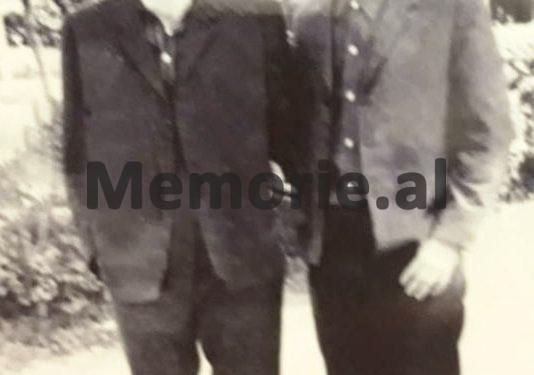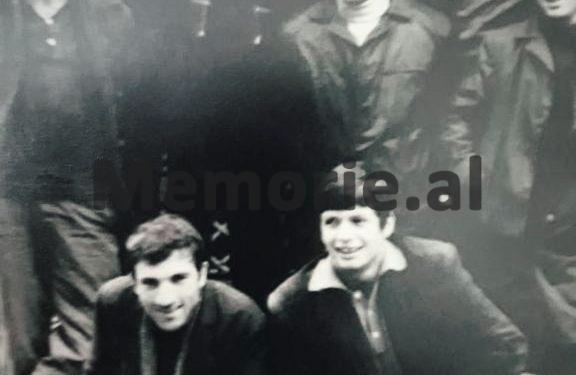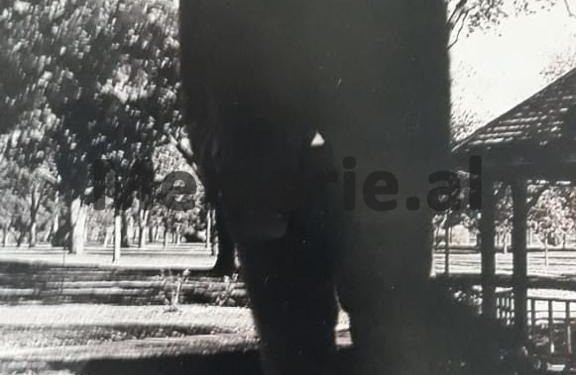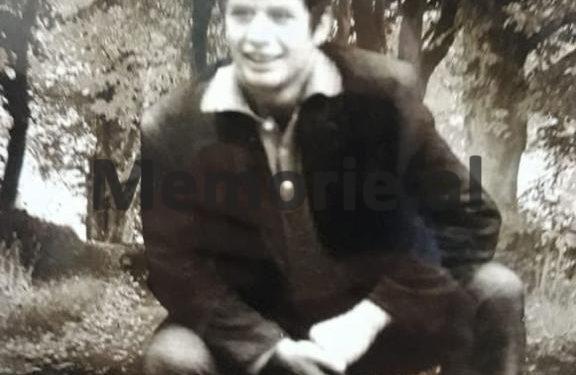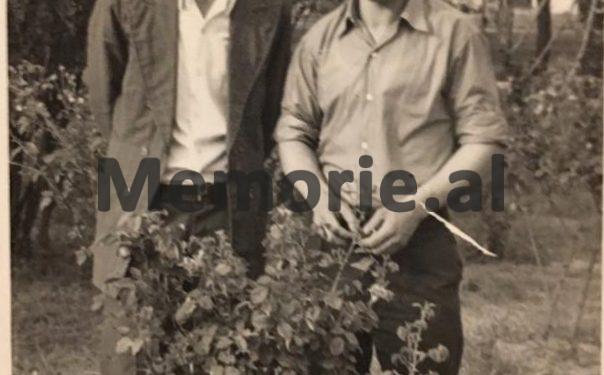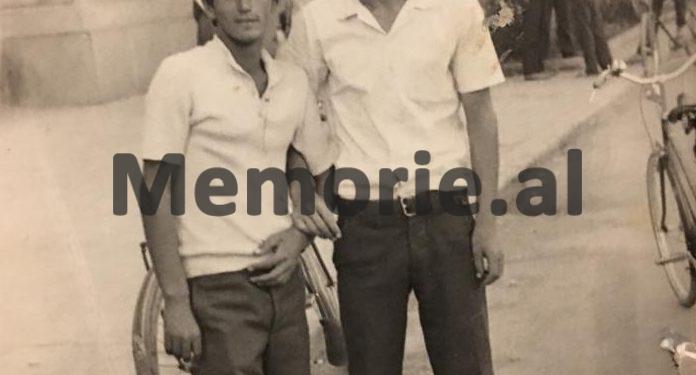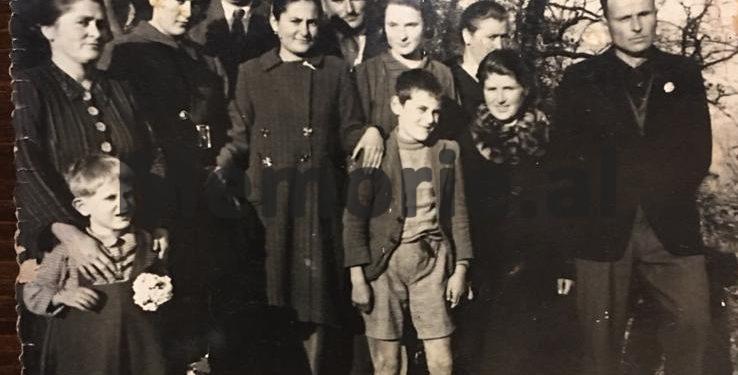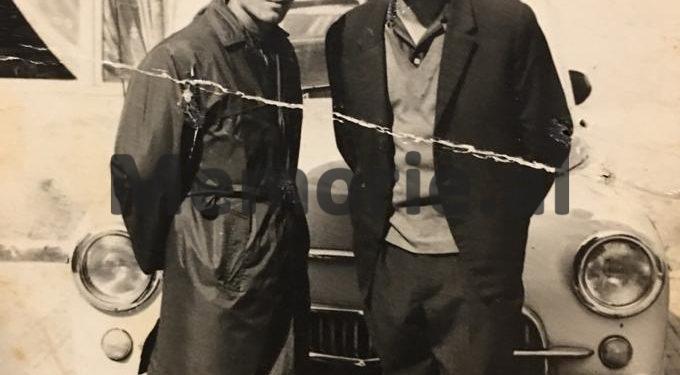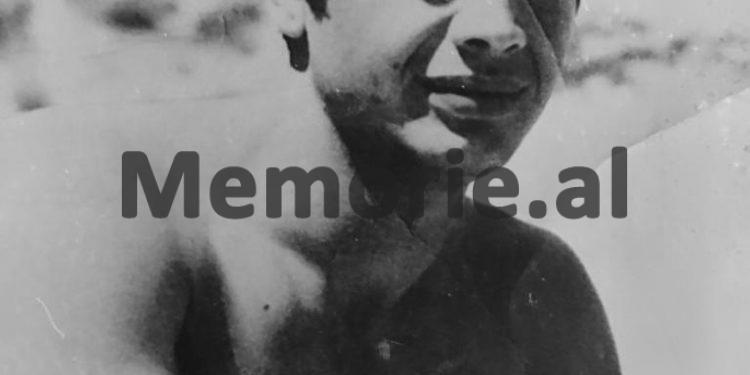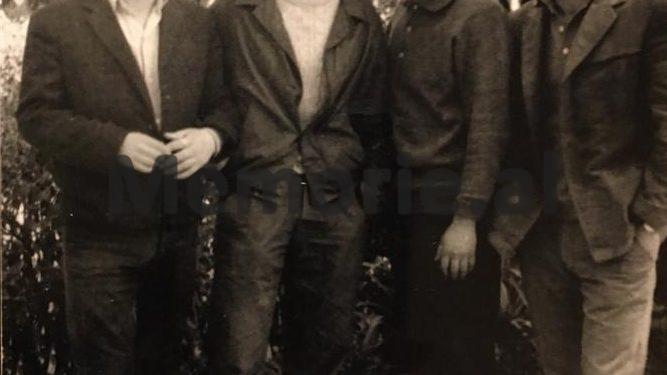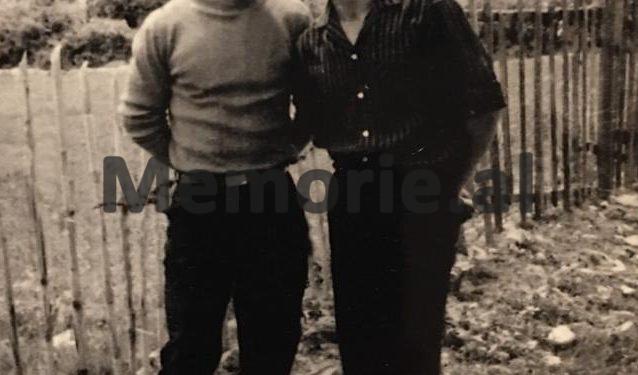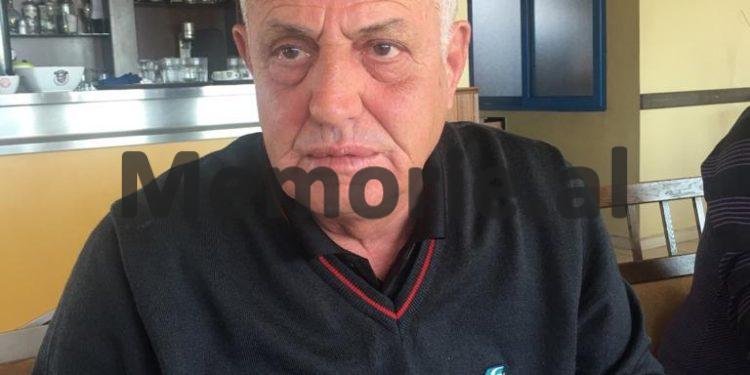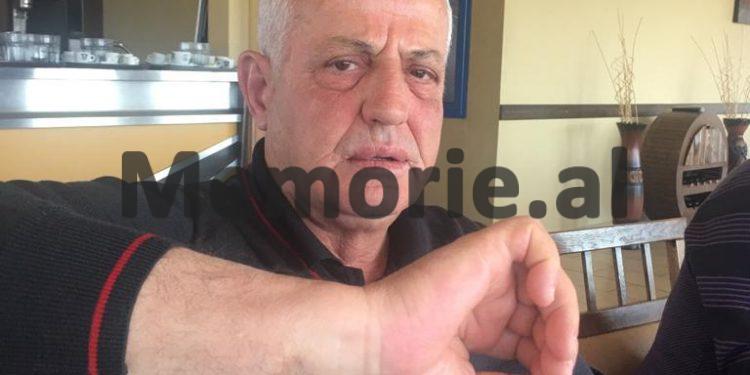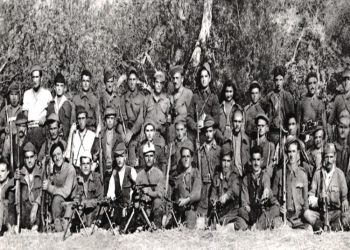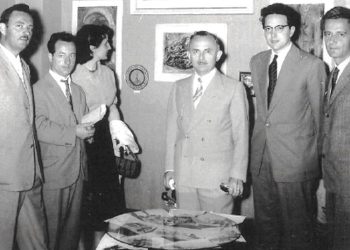Dashnor Kaloçi
Memorie.al publishes the unknown story that took place in the city of Shkodra on January 23, 1983, when two young men, Fatmir Gusha and Sali Breshni, after abducting three automatic weapons “Kalashnikov”, and some cartridges, in one of the wards was located in the village of Shtoj, they headed towards the city unscathed from the man to the Military Branch, where after being dictated and clashed with an officer, they started firing in the air as a sign of pressure.
Their departure, to go to the Internal Affairs Branch, was spotted by the police forces and they were forced to stay in an alley behind the Pedagogical Institute, “Luigj Gurakuqi”, where they entered and were locked in the house of the Hysej family, where they were surrounded by numerous forces of the Shkodra Police and the Military Division, as well as Special Forces (Ward 326) coming from Tirana.
“When Cafi came out of prison, he went to Hajmel and when he saw the situation where our family was under the ruins of that burnt house, he was so terrified that he did not become depressed. “There was no place for him and he thought of taking revenge on the government that was behaving in that way with our family, which, apart from being taken away from Shkodra by taking our house in the center of the city, was not leaving us comfortable even there in exile.” ! He tells Memorie.al, Fatmir’s brother, Mit’hat Gusha, or Tati as he is known in Shkodra, who for the first time talks about the event of January 23, 1983 in the city of Shkodra, where his brother was killed, Fatmiri, (otherwise known as Caf Susta), together with his friend, Sali Breshnin, after fighting for 8 hours in a row against the police forces, the army of the Shkodra Division and the special forces (Ward 326) coming from Tirana. Also in this interview, which comes after a long interview with the former chairman of the Shkodra Branch of Internal Affairs, Mr. Përparim Xhoxhaj, which Memorie.al published in the last two issues, Mr. Mit’hat Gusha also tells the whole story of his family under the communist regime, where all the brothers, together with their two parents, spent three decades in prisons and internments.
Mr. Mit’hat, how do you remember the incident on January 23-24, 1983, when your brother, Cafi, was killed and where were you at that time?
I was in Bulqiza prison at that time serving my sentence and the next day of that event, I was taken by bus and from Bulqiza I was sent to Zejmen prison camp, where political prisoners were serving their sentences.
While you were being sent to Zejemn, had you learned what had happened to your brother, Cafin?
No, I did not know anything, but from the attitude of the police towards me and the urgency with which they are taking me, it occurred to me that something could have happened, but only conjecture, that is, a premonition, so to speak, that I did not know anything else. had happened.
When did you learn the truth?
In the prison of Zejmen, where they put me in a cell and tortured me for two hours until I lost my soul, from the beatings they inflicted on me, wherever you were doing well.
They just beat you and said nothing… ?!
Beating me, they said to me: “Hey enemy, you wanted to overthrow the popular power, you also have the other one there and you have the place …” and other words like these.
Who gave you the news about the brother?
The fellow prisoners there told me: “They killed my brother”, and told me everything else that had happened, because what was happening outside, it was learned there in prison.
After that day, were you tortured anymore?
I have been tortured so much that even today, here I am with my arms outstretched by the blows and irons that gripped me. I became bone and skin and from 80 kg. since I got there, I went 40 kg. I saw myself so badly at that time from those tortures that were done to me there in the dungeons of Zejmen, that sometimes I wanted to end my life, but even today I do not know how I did not do that action!
What happened to your family that was in Shkodra after the Caf event?
The family was immediately interned in the village of Rehova in Berat.
The whole family…?
Not all, except the family of the elder brother, Fahri, (although he had sick people), as the rest of us at that time were in prisons and internments. Based on this fact, I am telling you that: we all as a family, have gathered together, only about 20 days, no more.
By what decision was his brother, Fahriu, interned?
Fahri was deported with his whole family, because a couple of days before the event, where Cafi was killed, he had slept one night there with his brother. Cafi had just come out of prison and had nowhere to sleep and went to his brother, Fahri, and just for that, Fahri was exiled.
How many members did your family consist of?
Both parents, (father, Qamili, mother, Hawaii), and we six brothers and one sister: Fariu, Hydajeti, Lili (sister), Fatmir, Enver, me, Mithati and Petriti.
At the time of the incident with Cafin, was the father alive?
No father, Qamili, had passed away since Cafi entered prison. He burst into tears that he could not bear it. And more than all of us, he suffered Cafi and he has been one of the biggest hostages of his life, until what happened where he was killed.
Before we go to the event with your brother, Cafin, can you tell us what problems your family had with the communist regime of that time that you suffered in prisons and internments and you personally, for what you were convicted?
This is a long story, but in short I am telling you that we as a family have not been well received by the communist regime, because of the biography we had, as our father, Qamil Gusha, was a gendarme in the time of Zog. And based on this fact, the deserter was not given any other job, only with the cart that collected garbage in the city bins. But the father did not have a problem with his work, but with the treatment he received, because they saw him as an enemy and often mentioned that work of the gendarmerie
Did your father express any dissatisfaction with the life he led and did he speak against the regime?
Constantly talking, but only with us at home. He followed the news closely and read the newspapers and from the beginning of the ’60s, he told us that “these will fall”, “this power is long, that now that they are breaking up with the Russians, they have fallen”. And he continued these even when we were breaking up with the Chinese, the same words he said.
From an interview we once had with the former Chairman of the Internal Affairs Branch of Shkodra, Përparim Xhoxhaj, he told us about a story of your father, who had put a picture of a leader in the wheelchair he worked in?
Yes, this is true. Out of resentment of his father for the communist regime, he took a picture of Marx and put it in the trash and went out to work in the city with it, seeing everyone, until the police caught him and removed it.
Did they say anything about what he did?
He was initially called to the Internal Affairs Branch where he was not left with questions and provocation without doing so, but he managed to escape because he did not say a word and escaped from prison, only Elez Mesi. We know him in his honor. But it did not end there, as they made my father a problem in the neighborhood where we as a family were unmasked in a Front meeting and we were interned as a family in the village of Hajmel in Shkodra, near Vau i Dejës.
Where did you live at the time you were interned?
We lived in a good house in an apartment almost in the center of Shkodra, as soon as you left the entrance, you were on the boulevard. And as soon as they removed us, our house was immediately taken over by the First Secretary of the Shkodra Party Committee. So it seemed obvious what they were deporting us for.
How do you remember the meeting that was unmasked to your family and the internment?
I do not know anything because at that time I was in prison and in 1977 I was released together with my brother, Hyda, but of course I was told.
What were you convicted of and where did you serve your sentence?
I was convicted of resisting police forces, or as I was accused of: disturbing public order. I served my sentence in Torovica and Bulqiza.
When you got out of prison, did you go into exile where was Hajmel’s family?
No, when Hyda and I went out in 1977, we took the things we had and left them at the entrance where we had the house they had already taken from us. Since he was in the center of the city, Fatmir Bardulla (Internal Affairs Branch staff) saw them, with M. B. and he ordered that the next day we be sent to Hajmel in exile where his parents were.
How long did you stay in exile in Hajmel?
Our family stayed there until January 1983, when the incident with Cafi happened, while I, as I told you, was in prison.
How was your family treated in exile in Hajmel?
Too bad, and from the treatment that was given to our family even in exile, the event with Cafin happened.
Specifically what?
During the time that our family was in exile, surely a survivor, we had secretly kept some cattle, as working in agriculture could not even provide a living. But these were not allowed and they have made us a problem several times by asking us to hand them over, but after those of the People’s Council tried and failed to get them, they were forced to bring the police of the Almighty.
And they took them…?
They did not take anything either, because the moment they went to take you by force, their brother, Hyda, came out to them, telling them not to make a mistake by entering by force, and he had a long debate with the police. However, seeing that the police were not retreating, Hyda took a can of gasoline and set the whole house on fire, telling the police: “Come in now and take the cattle?
What happened after that?
The house was all burnt down because the flames spread immediately so much that the alarm went off by sounding the sirens and the bell, they gathered the whole village with fire and could not, as the house was burned with everything inside.
What did they say to Hydajet?
Hydajet was immediately arrested and taken to court, sentencing him to five years in prison for resisting police forces.
What about the others?
The others remained under the ruins of that burnt house as if it were not worse, as they had nowhere to go and nothing to live on.
You said a little above that that event became the cause for Cafin who did that action afterwards…?
Yes, that event was triggered, because when Cafi came out of prison, he went to Hajmel and when he saw the situation where our family was under the ruins of that burnt house, he was so horrified that he did not become depressed. He did not hold his ground and thought of taking revenge on that power that was behaving that way with our family.
Specifically, did he comment on that?
Not with the people of the house was expressed at all, absolutely no words, but with friends yes, saying; I will do this and I will do that.
When did Cafi come out of prison and why was he convicted?
Cafi was released from prison in December 1982 with an amnesty granted at the time a few days earlier, in November I am not mistaken, suffering nearly five years in prison, and had earned a few months’ work. Cafi was convicted for opposing the police forces, which I saw explained correctly in his interview by the former Chairman of the Shkodra Branch of Internal Affairs, Përparim Xhoxhaj.
What did Cafi do after seeing the house in that condition?
He had nothing to do, only that he was upset and sometimes left without permission from Hajmeli where he was interned and came to Shkodra, meeting his family, wife and small children, and a friend, with whom, as we agreed on later, he had spoken that he would take revenge on those who had made us as a family in that state.
Specifically who did he talk to and what did he tell them?
The ones I told you above, that; they will know me, I will do this and I will do that, but no other concrete things about what happened later. He talked a lot with Myfit Tukic, as he has had a close friend since childhood in the Russian neighborhood, and Myfit can tell you more about that.
After the Caf event, when did you return as a family to Shkodra?
On July 1, 1987, we were released from exile and returned to Shkodra after being given a house in Qaf-Hardhi.
That closed your family’s problems with that power?
They did not close at all because we had another event, again with the police, a big quarrel that caused a commotion all over Shkodra.
Specifically, what?
Somewhere around 1988, if I am not mistaken, while all the members of our family were standing in the bar in front of the house, someone, introduced by the State Security, provoked us, saying: “You do not have a place here, you have to take you back to where you were ”, etc. It took so long and we quarreled with him, so much so that the police came in the van and we were busy punching and kicking the police, so much so that the police were forced and shot with guns in the air.
Was this your first provocation, or were there other cases before?
We had other provocations, but this case reached its climax, as the person was sent apostates to provoke us and irritate our nerves, because they said these are Cafi’s brothers and they will do something …?!
How do I proceed and how does this quarrel of yours end with the police?
After the police retreated firing their guns into the air, we all went upstairs and locked ourselves inside, but they came and before breaking the door of the house with axes, they filled our house with water, with a fire truck, made us porridge, but we still refused to leave the house.
What happened next?
The Chief of Police, Reshat Gjyli, came and we told him that; we agreed to surrender, only after he left the police.
What did he tell you?
Reshati became a man with us and said: “You are in my hand, no one touches you”.
You are affected…?
There they did not touch us, so they did not drag us as they were accustomed to, but sent us to the Inner Branch, putting us in dungeons. Reshati came there and told us: “If you are convicted, I will come to court and testify, claiming that you were provoked by that Security man.”
How long were you detained and brought to trial?
There in the dungeons, all the brothers kept us in prisons for about a month and after a month we were taken to court, where the Chief Justice was Kerov Babliku, who today is a lawyer in Tirana.
Did Reshat Gjyli come to court?
Reshati came and told the presiding judge: “Officially call me as a witness, that I will testify that they are not guilty, as they provoked and offended them.”
What did the presiding judge say?
He said, “No, I do not need to know,” and he released us all from the courtroom.
After that you had more problems with the police and the government of that time?
Not after that no one disturbed us anymore.
At the end of this interview, we wanted to ask you about what he said in his interview and the former Chairman of the Internal Affairs Branch of Shkodra, Mr. Përparim Xhoxha, that your family was interned to take your house ?!
It’s more than true, and I have nothing to add or subtract from it.
Likewise, from some other interviews we have received from Cafi’s friends, we have been told that that event, that is, the action that Cafi had with his friend, Sali Breshnin, had a political background, but the government of that time left silently considering it as an event not for political motives, as the biography of a high cadre of the leadership of the ALP of that time, that you had family ties, was broken?
This is more than true. Cafi’s event was quite political, as Cafi had neither enmity nor resentment or quarrel with anyone. If he had, he would have gone and taken revenge, but he did not do it, but set out in the direction of the Internal Branch and the Party Committee, to vent all the anger and hatred he had towards them because of of the situation where they had turned us as a family, who were not leaving us alone even in exile. And as you have rightly been told, the communist regime did not treat this as a political event, as Lumi, the wife of Muho Asllani, who at the time was a member of the Politburo, Deputy Prime Minister, I don’t know. me, is our aunt’s daughter. So River’s mother and our mother, Hawaii, are sisters.
But before that event, what relations did you have with your aunt’s daughter and her family?
In addition to my aunt’s daughter, we also had Lumi’s neighbor, but the reports were normal and we did not do much, as we did not reach out to anyone.
But after that event that happened to Caf, did you break up with them at all?
I am telling you a case, in 1988 when the son of our aunt, Sytki Basha, who worked as a veterinarian, died in Velipoja, and they called him, Lapi, the people of his family, sent us words so that we would not even go for comfort and nor at the funeral, as we were not welcomed by them. And we did not go.
God, Mit’hat, thank you for the interview.
We thank you for trying to shed light on this event which the communist regime of that time closed and left in silence even for these things that we have just mentioned now, but even more so to remove the mud that we have unjustly tried. to throw at us./Memorie.al




